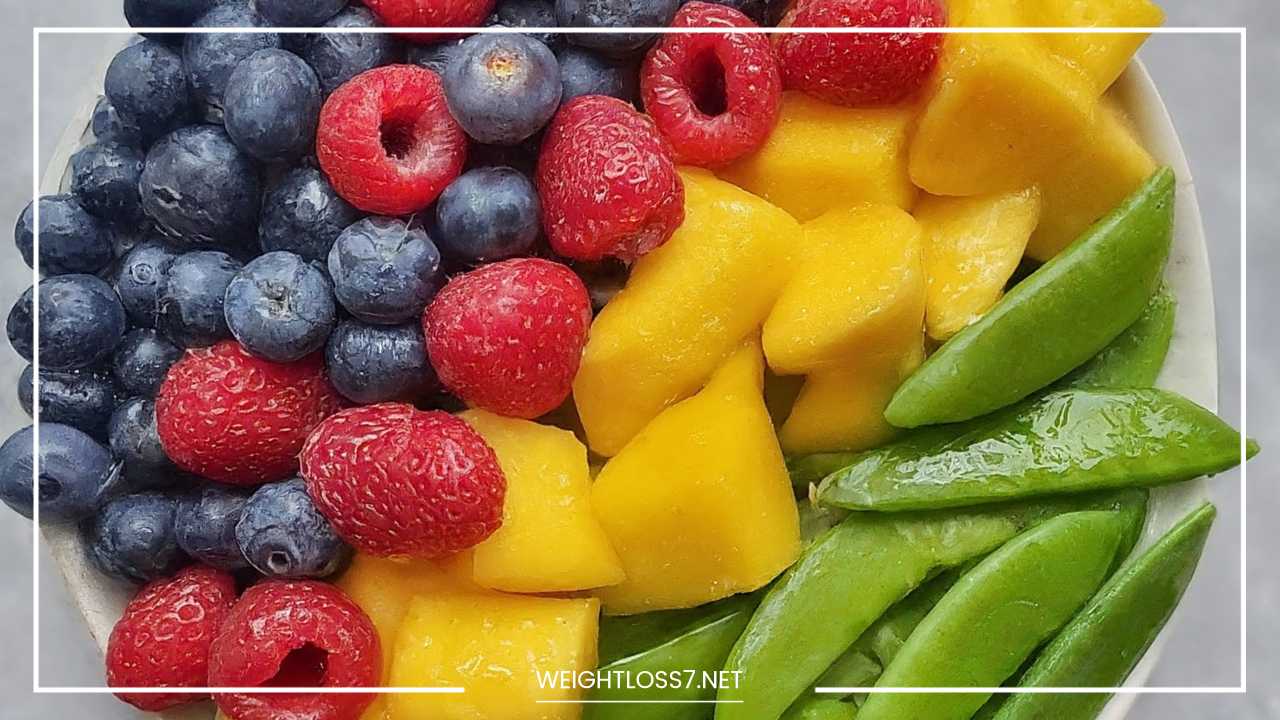Sustainable Weight Loss Diet Strategies for Long-Term Success

Weight Loss Diet
Shedding Pounds Safely: A Comprehensive Guide to Weight Loss Diets
Dieting. The word itself can conjure up images of deprivation, bland food, and relentless hunger pangs. But what if weight loss could be a transformative experience, a journey towards a healthier, happier you?
The truth is, a well-designed diet plan, coupled with a holistic approach to wellness, can be a powerful tool to achieve your weight loss goals and improve your overall quality of life.
This comprehensive guide dives into the world of weight loss diets, exploring different approaches, unpacking the science behind healthy habits, and outlining sustainable strategies that will empower you to make lasting changes.
Understanding Weight Loss: Beyond Calories
While creating a calorie deficit (burning more calories than you consume) is fundamental to weight loss, it’s not the whole picture. Different factors influence weight management, including:
- Metabolism: This complex process governs how your body converts food into energy. Factors like age, muscle mass, and genetics can affect your metabolic rate.
- Hormones: Hormones like leptin and ghrelin regulate hunger and satiety. Certain dietary choices can influence these hormones, impacting your appetite and weight management.
- Gut Health: A diverse gut microbiome plays a crucial role in metabolism and nutrient absorption. Maintaining a healthy gut through a balanced diet rich in prebiotics and probiotics can support weight loss efforts.
- Sleep: Adequate sleep is essential for regulating hormones that influence hunger and satiety. When sleep-deprived, your body produces more ghrelin (the “hunger hormone”) and less leptin (the “fullness hormone”), making you crave unhealthy foods.
Exploring a Spectrum of Weight Loss Diets:
There’s no magic bullet when it comes to weight loss. The best diet is the one that fits your lifestyle, preferences, and health conditions. Here’s an overview of some popular approaches:
-
The Mediterranean Diet: This heart-healthy plan emphasizes a balanced intake of fruits, vegetables, whole grains, legumes, nuts, seeds, and healthy fats like olive oil. It promotes moderate consumption of fish and poultry, with limited red meat, processed foods, and added sugars.
-
The DASH Diet: Designed primarily to lower blood pressure, the DASH diet focuses on fruits, vegetables, low-fat dairy products, and whole grains. It also encourages lean protein sources like fish and poultry, while limiting saturated and trans fats, red meat, sweets, and sugar-sweetened beverages.
-
The Flexitarian Diet: This approach encourages a mostly plant-based diet, with occasional lean meats or fish included. It allows for flexibility while promoting the benefits of a plant-rich way of eating.
-
The Volumetrics Diet: This diet emphasizes low-calorie, high-volume foods like fruits, vegetables, and non-starchy broths. It allows for feelings of satiety without excessive calorie intake.
-
The MIND Diet: This approach combines the Mediterranean and DASH diets, focusing on brain health. It emphasizes leafy greens, berries, nuts, whole grains, olive oil, and fish, while limiting red meat, saturated and trans fats, pastries, and fried foods.
Core Principles for Sustainable Weight Loss:
Regardless of the specific dietary approach you choose, several core principles underpin successful and sustainable weight loss:
-
Calorie Awareness: While not the sole factor, understanding your daily calorie needs and creating a slight calorie deficit is essential for weight loss. Consulting a registered dietitian or using a reputable calorie-tracking app can help you determine your individual needs.
-
Nutrient-Dense Eating: Focus on whole, unprocessed foods rich in vitamins, minerals, and fiber. These foods provide essential nutrients for optimal health and keep you feeling fuller for longer, reducing cravings. Fruits, vegetables, whole grains, legumes, and lean protein sources are excellent choices.
-
Portion Control: Manage portion sizes to avoid overeating. Utilize smaller plates, measure out servings, and avoid distractions while eating to promote mindful consumption.
-
Hydration: Drink plenty of water throughout the day. Water helps curb hunger pangs, supports digestion, and flushes toxins from your body. Aim for eight glasses of water daily, adjusting based on activity level and climate.
-
Mindful Eating: Slow down, savor your food, and listen to your body’s hunger cues. Avoid distractions like television or phones while eating. This mindful approach allows you to recognize satiety signals and avoid overeating.
-
Fiber is Your Friend: Fiber promotes healthy digestion, keeps you feeling full, and slows down the absorption of sugar into the bloodstream. Include fruits, vegetables, whole grains, and legumes in your diet to increase fiber intake.
-
Read Food Labels: Become a label-reading pro! Pay attention to portion sizes, calorie counts, and the sugar content of processed foods. Look for products with a short list of whole food ingredients.
Building Sustainable Habits for Lasting Weight Loss
Crash diets and fad trends might offer quick fixes, but they’re rarely sustainable in the long run. Here’s how to create healthy changes that you can maintain for a lifetime:
-
Find the Joy in Food: Explore new recipes and cuisines to keep things interesting. Experiment with different spices and herbs to add flavor without relying on excessive salt or unhealthy fats. Embrace healthy cooking methods like grilling, baking, and steaming.
-
Plan and Prep: Planning meals and prepping healthy snacks in advance can be a game-changer. This helps you avoid unhealthy choices when hunger strikes or time is limited. Dedicate a portion of your weekend to prepping cut vegetables, cooked grains, and portioned snacks for the week ahead.
-
Cook More at Home: Taking control of your meals by cooking at home allows you to choose healthier ingredients and control portion sizes. Experiment with new dishes and involve family or friends in the cooking process to make it a fun and social activity.
-
Mindful Movement: Combine a healthy diet with regular physical activity for optimal weight loss and overall health. Aim for at least 150 minutes of moderate-intensity exercise per week, or a combination of moderate and vigorous activity. Find activities you enjoy, whether it’s brisk walking, dancing, swimming, or team sports.
-
Strength Training Matters: Don’t underestimate the power of strength training. Building muscle mass boosts your metabolism, helping you burn more calories even at rest. Include bodyweight exercises, weight training, or resistance bands in your routine for an extra metabolism boost.
-
Don’t Skip Meals: Skipping meals can disrupt your metabolism and lead to overeating later. Aim for regular meals and healthy snacks throughout the day to maintain stable blood sugar levels and keep your energy levels up.
-
Manage Stress: Chronic stress can elevate cortisol levels, a hormone that promotes fat storage. Practice stress-management techniques like yoga, meditation, deep breathing exercises, or spending time in nature.
-
Find Your Support System: Surround yourself with positive and supportive people who encourage your healthy lifestyle choices. Talk to friends, family, or join a weight loss support group for motivation and accountability.
-
Celebrate Non-Scale Victories: Focus on progress, not just the number on the scale. Celebrate non-scale victories like increased energy levels, better sleep, improved mood, stronger muscles, and more confidence. These positive changes are a sign that you’re on the right track.
Additional Considerations:
-
Addressing Medical Conditions: Certain medical conditions like thyroid disorders or polycystic ovary syndrome (PCOS) can impact weight management. Consult your doctor to rule out any underlying conditions and discuss a personalized weight loss plan that fits your specific needs.
-
Making Gradual Changes: Don’t try to overhaul your entire lifestyle overnight. Start with small, sustainable changes and gradually build upon them. Focus on making one or two changes at a time, allowing yourself time to adjust and build new habits.
-
Self-Compassion is Key: Be kind to yourself throughout your weight loss journey. There will be setbacks and slip-ups. Don’t beat yourself up – learn from them and get back on track.
-
Seeking Professional Help: If you’re struggling with weight loss or have concerns about your eating habits, don’t hesitate to seek professional help. A registered dietitian or licensed therapist can provide personalized guidance and support.
Remember, weight loss is a journey, not a destination. Embrace healthy habits, celebrate your progress, and find joy in nourishing your body.
With dedication, self-compassion, and the right tools, you can achieve your weight loss goals and create a healthier, happier you.

















